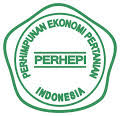Kelayakan Finansial Usaha Produksi Terasi Udang Kecepai (Acetes Indicus) Di Kecamatan Pangkalan Susu, Kabupaten Langkat
DOI:
https://doi.org/10.25181/jofsa.v6i1.2307Keywords:
financial feasibility, investment, sensitivity, shrimp, shrimp pasteAbstract
The objective of this research is to calculate the amount of investment to establish shrimp paste business in Pulau Kampai Village and to evaluate the level of feasibility of the Kecapai shrimp paste (Acetes indicus) processing business based on financial aspects (financial) using undiscounted and discounted investment criteria analysis and sensitivity. The survey method was employed in this research, and the respondents were determined through census. The data was taken directly from the 32 shrimp paste entrepreneurs using observation, interviews, and documentation. As per the results of this study, the investment needed to initiate a shrimp paste business in the micro scale is Rp8.089.018,- while a resource needed in the small scale is Rp12.425.200,-. when it is not shrimp season or season in a month, micro and small scale businesses are considered eligible to continue because they exceed the break even point, and the results of the undiscounted investment analysis BEP volume and price of production when it is not season or season in a month micro and small scale are declared eligible to continue because they exceed the break even point. Nevertheless, the ROI for micro and small scale when it is not season and season is declared unfeasible because it will be less than one. The NPV, IRR, B/C Ratio, PP, micro, and small scale are declared viable to produce for the computation of the discounted investment criteria since they match the eligibility criteria. Nevertheless, a sensitivity analysis reveals that one possibility, namely a fall in selling prices and a rise in variable expenses, renders the business unviable.Downloads
References
Arikunto, S. (2012). Prosedur Penelitian Suatu Pendekatan Praktik. Rineka.
Aristyan, I., Ibrahim, R., & Rianingsih, L. (2014). Pengaruh perbedaan kadar garam terhadap mutu organoleptik dan mikrobiologis terasi rebon (Acetes sp.). Jurnal Pengolahan dan Bioteknologi Hasil Perikanan, 3(2), 60-66.
Bathara, L., Nugroho, F., Yolandika, C., & Hamzah, G. (2021, November). Livelihood Assets of Small-Scale Fisherman in Tanah Merah District, Indragiri Hilir Regency, Riau Province, Indonesia. In IOP Conference Series: Earth and Environmental Science (Vol. 934, No. 1, p. 012042). IOP Publishing.
BPS. (2012). Badan Pusat Statistika Indonesia. Jakarta Pusat.
Demeslati., Sumarto., dan Saputri, M. (2013). Kajian Penerimaan Konsumen dan Mutu Nugget Udang Rebon (Acetes Erythraeus). Jurnal Penelitian Pertanian BERNAS, 8(2), 55–66.
Fattah, M., & Purwanti, P. (2017). Manajemen Industri Perikanan. UB Press.
Gaffar, A., Umami, S. S., & Supardan, D. (2020, February). Bacterial pollution of a traditional terasi, shrimp paste rebon (Mysis relicta). In 2nd International Conference on Islam, Science and Technology (ICONIST 2019) (pp. 142-146). Atlantis Press.
Gigentika, S., Sugeng, H. W., M. (2013). Kelayakan Finansial Usaha Perikanan Pancing Tonda Di PPP Labuhan Lombok Kabupaten Lombok Timur. Buletin PSP, 21(2), 137–148.
Khotimah, H., dan S. (2014). Analisis Kelayakan Finansial Usaha Budidaya Bambu. Jurnal Ilmu Kehutanan, 8(1), 14–24. https://doi.org/10.22146/jik.8548
Kusuma, P. T. W. W. (2012). Analisis Kelayakan Finansial Pengembangan Usaha Kecil Menengah (UKM) Nata De Coco Di Sumedang, Jawa Barat. Jurnal Inovasi Dan Kewirausahaan, 1(2), 113–120.
Mas’ud, F., Dona, W. L., dan M. (2020). Analisis Usaha Terasi Udang Rebon (Acetes indicus) di Kabupaten Lamongan. Jurnal Grouper, 11(2), 1–6. https://doi.org/10.30736/grouper.v11i2.69
Maulana, I., Yulinda, E., & Hendri, R. (2020). Analisis Usaha Penangkapan Ikan Laut dengan Alat Tangkap Jaring Insang (Gillnet) di Panipahan Kecamatan Pasir Limau Kapas Kabupaten Rokan Hilir Provinsi Riau. Jurnal Sosial Ekonomi Pesisir, 1, 30–38.
Nazir, M. (2013). Metode Penelitian. Ghalia Indonesia.
Nugraha, A., Suhatmini, H., dan Jangkung, H. M. (2017). Analisis Kelayakan Finansial Usaha Terasi Sijuk di Desa Sungai Padang Kecamatan Sijuk Kabupaten Belitung. Agro Ekonomi, 28, 142–156.
Putri, N. A., Zumi, S., Dika, S., dan Lucyana, T. (2020). Analisis Kelayakan Bisnis Kedai Kopi (Studi Kasus Pada Agrowisata N8 Malabar, Pangalengan, Kabupaten Bandung). Journal of Food System and Agribusiness, 3(1), 89–100.
Susilowati, E., dan Haruni, K. (2018). Analisis Kelayakan dan Sensitivitas: Studi Kasus Industri Kecil Tempe Kopti Semanan, Kecamatan Kalideres, Jakarta Barat. BISMA (Bisnis Dan Manajemen), 10(2), 102–116. https://doi.org/10.26740/bisma.v10n2.p102-116
Sutarni, S., Irawati, L., Unteawati, B., & Yolandika, C. (2019). Proses Pengambilan Keputusan Pembelian Sayuran Hidroponik Di Kota Bandar Lampung. Journal of Food System & Agribusiness, 2(1), 17–24. https://doi.org/10.25181/jofsa.v2i1.1107
Syafril, M., dan Dayang, D. F. (2020). Kelayakan Finansial Usaha Pengolahan Terasi Udang Rebon di Kelurahan Bontang Kuala Kota Bontang Provinsi Kalimantan Timur. Agromix, 11(1), 33–48. https://doi.org/10.35891/agx.v11i1.1897
Wahyuni, R. D., Yulinda, E., & Bathara, L. (2020). Analisis Break Even Point dan Risiko Usaha Pembesaran Ikan Nila (Oreochromis niloticus) dalam Keramba Jaring Apung (KJA) di Desa Pulau Terap Kecamatan Kuok Kabupaten Kampar Provinsi Riau. Jurnal Sosial Ekonomi Pesisir, 1(1), 22–33.
Yolandika, Clara, Berliana, D., & Anggraini, N. (2021). Efisiensi Kinerja Rantai Pasok Ikan Patin di Pringsewu , Lampung Pangasius Supply Chain Perfomance Efficiency in Pringsewu , Lampung. Journal of Food System & Agribusiness, 5(2), 107–115.
Yulinda, E. (2012). Analisis Finansial Usaha Pembenihan Ikan Lele Dumbo ( Clarias Gariepinus ) di Kelurahan Lembah Sari Kecamatan Rumbai Pesisir Kota Pekanbaru Provinsi Riau. Jurnal Perikanan Dan Kelautan, 1, 38–55.
Downloads
Published
How to Cite
Issue
Section
License
Copyright (c) 2022 Journal of Food System and Agribusiness

This work is licensed under a Creative Commons Attribution-NonCommercial 4.0 International License.
With the receipt of the article by the Journal of Food System and Agribusiness Editorial Board and the decision to be published, then the copyright regarding the article will be diverted to the Journal of Food System and Agribusiness.
Politeknik Negeri Lampung as the publisher of the Journal of Food System and Agribusiness holds the copyright regarding all the published articles in this journal.
Politeknik Negeri Lampung has the right to multiply and distribute the article and every author is not allowed to publish the same article that was published in this journal.
The manuscript authenticity and copyright statement submission can be downloaded ON THIS FORM. Fill out the form and submit as a supplementary file.
All publications by Journal of Food System and Agribusiness is licensed under a Creative Commons Attribution Non-Commercial 4.0 International License.
























